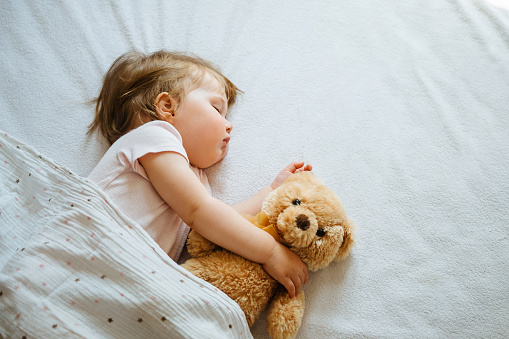
19 Aug Sleep Hygiene and Routines
Maintain a clear daytime schedule.
• Explain to your child which behaviours are accepted and which are not by positive
reinforcement of the good behaviour and ignoring the bad behaviour.
• Do not punish your child by sending her to bed.
• A bedroom is only for sleeping, not for playing.
• Avoid heavy or stimulating food and drinks before bedtime.
• Reward your child when she/he had a good night sleep behaviour.
Preparing for bedtime
• Warn your child that it is almost bedtime; indicate when the last activity starts so she can
prepare for bedtime.
• Try to ease your child down and to have a regular bedtime.
• Take your time and do not give your child the impression that you are working against her.
• All caregivers (parents and Grandparents) should provide consistency by working together as
a team
• Teach your child to fall asleep by herself and do not stay with her until she sleeps.
Bedtime routines
• Use the same ritual every day but keep it short.
• If reading is part of the bedtime ritual, make clear rules about the reading time.
• Some children can experience benefits from relaxing exercises.
Environment
• A dark, calm, and not too warm [approximately 18°] room is the best.
• If your child is afraid of the dark, use a dimmed light in the room or keep the door slightly
open to reassure the child.
• Remove computers and televisions from the bedroom
• Avoid blue light from screens before going to sleep.
• Avoid co-sleeping with your child. Please ensure that the child sleeps in his/her own bed in
his/her room. If you are finding it difficult to suddenly withdraw you can follow a gradual
process of withdrawing. You can initially start with checking on the child at periodic intervals.
and gradually prolonging the gap and reducing the number of times you check.

At night if your child cries for you
• At the beginning, send the parent/caregiver who can be the firmest to the child.
• Use the same strategy as your partner caregiver.
• Do not react on the first call but do not wait until your child is completely upset.
• Try to stay calm, keep the lights low, and talk softly. Keep your child in her room and even.
better in her bed. Do not stay too long with your child.
• Let your child sleep in his /her own bed.
• Do not approach your child if you are feeling angry.



Sorry, the comment form is closed at this time.